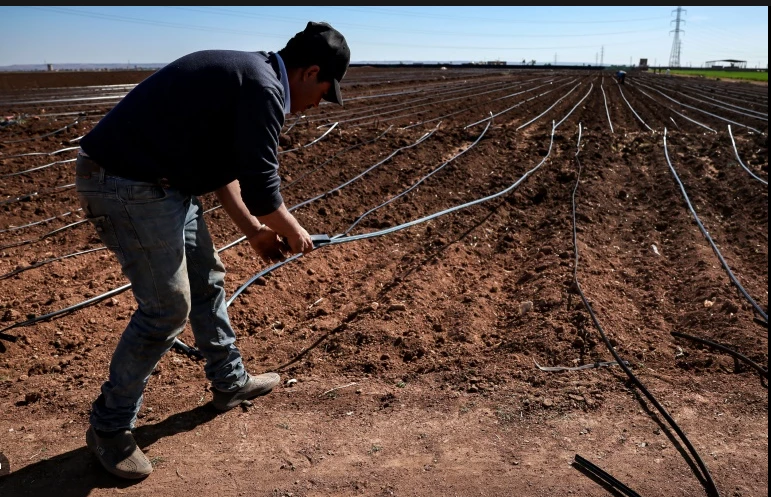Climate change parches Morocco breadbasket amid policy pitfalls

Stay tuned with 24 News HD Android App

Around this time every year, Moroccan wheat farmer Abderrahim Mohafid is usually preparing for his spring harvest, but this year his fields lay unusually bare.
On the road leading up to his hamlet in Berrechid province, Morocco's historical breadbasket situated some 40 kilometres (about 25 miles) southeast of Casablanca, vast fields languish as the country grapples with its sixth consecutive year of drought.
"The harvest is already lost," said Mohafid, 54, as he glanced at his 20-hectare (nearly 50 acre) field where almost nothing has grown.
"Wheat should already be at 60 centimetres."
In a neighbouring village, Hamid Najem found himself in the same predicament.
His 52 hectares (about 128 acres) that have yielded soft wheat and barley in past years "are no longer good for anything", said the 50-year-old.
"We've never had such a tough year."
More than 88 percent of Berrechid's vast agricultural lands are not irrigated, with farmers relying instead on rain, according to Morocco's agriculture ministry.
Yet so far this year, the North African country has seen only about half the rainfall it did during the same period last year, Morocco's water minister Nizar Baraka told AFP.
This has occurred in parallel with temperatures in Morocco increasing by an average of 1.8 degrees Celsius (3.2 degrees Fahrenheit) compared to the period between 1981 and 2010, he added.
In recent weeks, Moroccan authorities have restricted the opening of hammams and car wash stations in several cities and prohibited the watering of golf courses or gardens with drinking water, as the country's dams are only at 23 percent capacity, compared to around 32 percent last year.
-'Serious impact on economy'-
The successive years of drought are "compromising" this agricultural season, says Abderrahim Handouf, an agronomist.
Fearing the effects of the prolonged water scarcity, farmers had already reduced the size of areas in which they sowed cereals, according to the expert.
In November, they had sown 2.3 million hectares compared to between four and five million hectares on average in previous years, he said.
The situation, Handouf added, will have a "serious impact on the economy" of the country where a third of the population works in agriculture.
The sector also accounts for 14 percent of Morocco's exports, with exported produce seen as more profitable than that sold in domestic markets.
Mohafid said he hoped to make up for losses in previous seasons by adapting new sowing techniques, such as planting seeds without ploughing the field first, allowing the soil to preserve its natural humidity.
"The harvest is already lost, but I hope it will rain in February and March at least to have enough to feed the livestock," he said.
For some larger-scale farmers, the prospects aren't as gloomy, but irrigation has become essential.
Hamid Mechaal says he can count on irrigation to save his 140 hectares in the east of the province of Berrechid, where he grows wheat, carrots and potatoes.
"With drought, we are forced to irrigate at 85 percent, whereas before, irrigation was only complementary," said the farmer.
Like 500 farmers in the region, he is supplied with a fixed allocation of 5,000 tonnes of water per hectare "to better manage" the coveted resource.
-A policy issue-
Morocco's agricultural model -- tunnel-visioned on exports for the past 15 years -- is yet again faced with challenges at a time when the country sees "an absolutely declining water supply", said Mohamed Taher Srairi, an agronomist.
It has nonetheless been focused on water-intensive crops, like carrots in Berrechid, he added.
The Food and Agriculture Organization (FAO) has similarly warned of a "disorderly intensification of irrigation" in Berrechid over the past two decades.
"Between 2007 and 2017, carrot production, for instance, increased nearly 500 percent," it noted in a November report, noting that the Berrechid aquifer was "one of the most depleted in Morocco".
The North African country's needs are estimated at more than 16 billion cubic metres of water, including 87 percent for the agricultural sector, but it has only had five billion cubic metres over the last five years, according to the water ministry.
"Agricultural policy should be reviewed from top to bottom," said Handouf.
"Today, I'm under the impression that the government is looking in one direction while reality is in the opposite direction."
